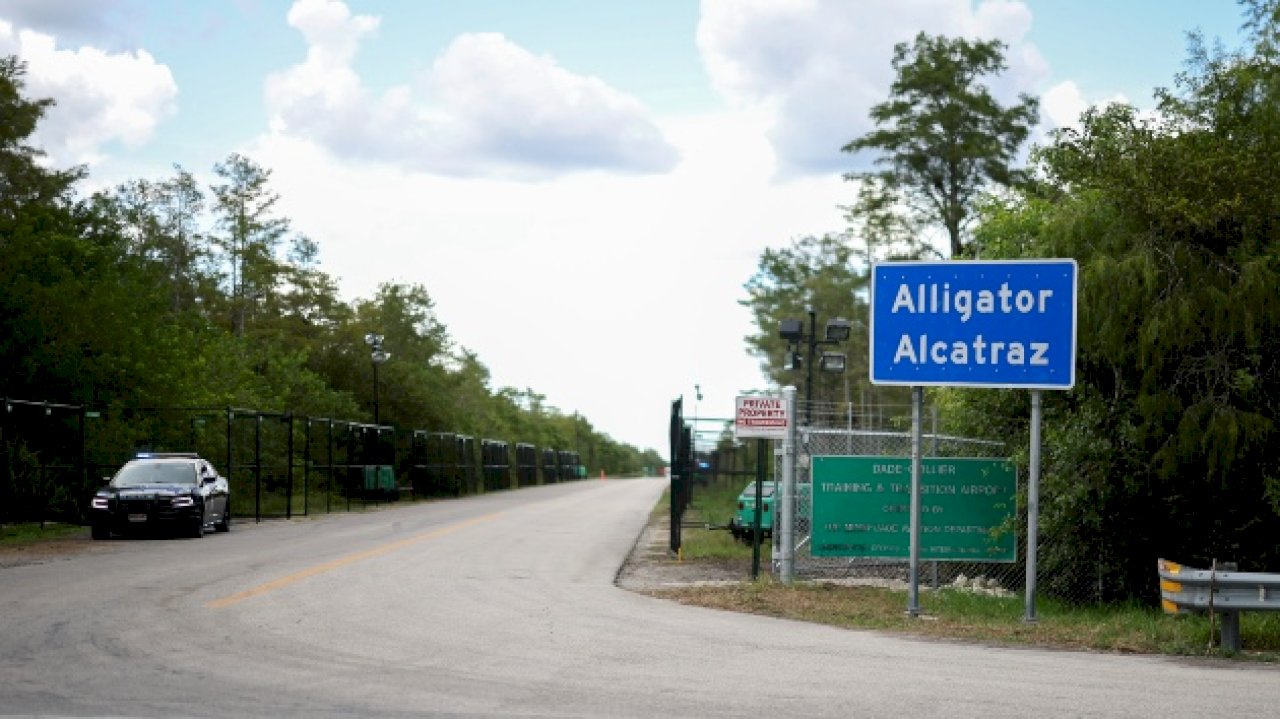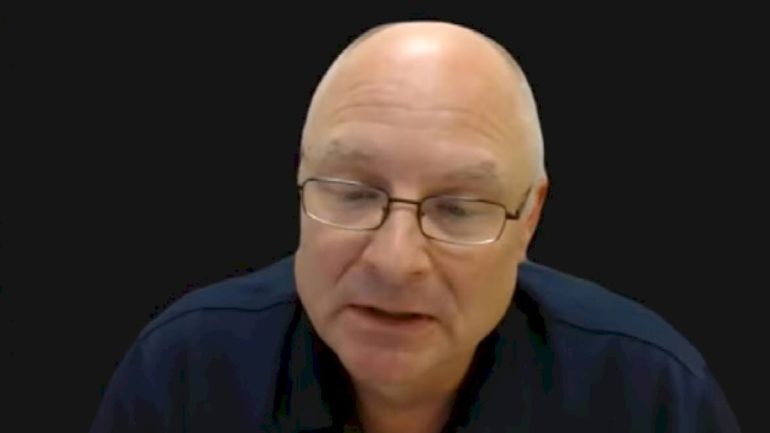Listeners:
Top listeners:
-
 play_arrow
play_arrow
94.3 Rev-FM The Rock of Texas | Where Texas Rocks
-
 play_arrow
play_arrow
99.1 The Buck Texas Country's Number 1 Country
-
 play_arrow
play_arrow
103.7 MikeFM Your Texas Hill Country Mix Tape
-
 play_arrow
play_arrow
KERV 1230 AM
-
 play_arrow
play_arrow
JAM Sports 1 JAM Broadcasting Sports 1
-
 play_arrow
play_arrow
JAM Sports 2 JAM Broadcasting Sports 2
Judge appears skeptical about lawsuit challenging treatment of detainees at ‘Alligator Alcatraz’

(MIAMI) — A federal judge appeared skeptical about a lawsuit challenging the temporary detention facility in the Everglades known as “Alligator Alcatraz” during a court hearing on Monday, despite plaintiffs’ claims that the Trump administration and the state of Florida have run “roughshod over constitutional concerns” in their rush to build the controversial facility.
A group of detainees at the facility is asking U.S. District Judge Rodolfo Armando Ruiz II, a Trump appointee, to issue an order that would require authorities to expand legal access at the controversial facility, where the detainees say they lack a standard way to communicate with their attorneys, and that they are being held without any formal criminal or immigration charges against them, making it challenging, if not impossible, for them to seek release on bond.
Judge Ruiz told plaintiffs’ lawyers that their lawsuit might need to be transferred to a different court, remarking that the case suffers from a “breakdown” over venue. The judge also struggled to articulate how he could craft an order that would remedy the concerns raised by the detainees.
While legal access at the facility has improved since the facility’s early days, lawyers for the detainees argued that their clients still lack a consistent way to contact their lawyers confidentially.
“The government has been in such a rush to build and detain people at the facility that it has run roughshod over constitutional concerns,” said ACLU attorney Eunice Cho. “The irreparable harm here is extraordinary.”
During the hearing, Judge Ruiz appeared receptive to the ongoing issues raised by the plaintiffs but acknowledged that the access issues were “a natural byproduct of a facility being stood up very quickly.”
ACLU attorneys said that at least one person was wrongly deported from the facility after failing to contact their lawyers, and claimed that a mentally disabled man was encouraged to sign a voluntary departure form without an attorney. They also claimed that one lawyer had to wait three weeks to contact their client.
According to Judge Ruiz, the improvements to the access have “narrowed” the lawsuit, but a “live controversy with the nature of access” continues.
He added that granting the relief requested by the detainees would be challenging, given that the issue is not about whether they have access to their attorneys, but the degree of their access.
“What am I going to put in an order?” he said. “You’d need to have some metric. It’s not necessarily that it can’t be done, but I think you can understand why crafting a scope of relief on the ground [is challenging].”
The judge noted that he might need to transfer the case out of the Southern District of Florida because the alleged legal claims stem directly from the facility in the Everglades, which is in the Middle District of Florida. Plaintiffs initially tried to tie the case to the Southern District of Florida by relying on the federal defendants based in Miami, rather than the state defendants who oversee running the detention center in the Everglades.
“That’s where the rubber hits the road,” Judge Ruiz said. “If I can get to the merits, I will. If I have to transfer, I will.”
Lawyers for the Trump administration encouraged Judge Ruiz to toss the case, arguing that the detainees are using their First Amendment claims to challenge “the decision of the attorney general of DHS to use the alligator Alcatraz as a detention facility.”
“I think the best argument they’re attempting to advance today on the federal side is that this is almost a Trojan horse [that] the First Amendment argument is all window dressing, that at its core, this is really attempting to challenge kind of the underlying immigration determinations or detention determinations being made,” Judge Ruiz said.
In court filings prior to the hearing, plaintiffs argued that “Alligator Alcatraz” exists in a legal “black hole” with no clearly defined immigration court to challenge their detentions, but the Trump administration recently designated the Krome North Service Processing Center near Miami as the immigration court with responsibility for the facility.
This is the second major lawsuit challenging the operation of “Alligator Alcatraz,” as another federal judge is considering blocking the use of the facility over environmental concerns.
U.S. District Judge Kathleen Williams, after a multi-day hearing earlier this month, issued a temporary restraining order blocking further construction at the facility, and is now considering a broader order barring use of the facility.
Copyright © 2025, ABC Audio. All rights reserved.
Written by: ABC News
-
Top popular

Ingram man charged with murder after fatal shooting

Kerr Crime Stoppers offering reward up to $5,000 for information in last week’s non-viable school threat

KISD asks parents to communicate with children about words and actions after ‘copy cat’ threat note found at middle school

City of Kerrville Parks and Recreation reminds citizens that a Red Flag Warning is in effect until further notice

City of Kerrville says that May 7 General and Special Elections will proceed



